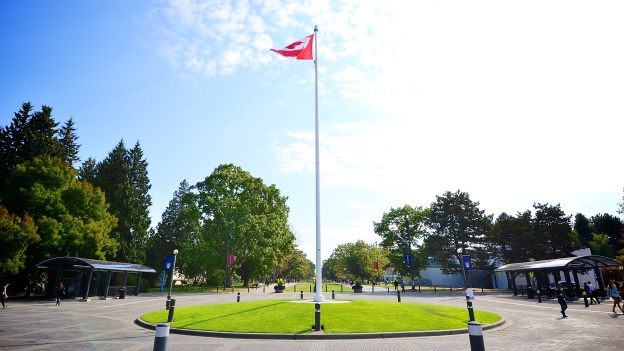Names and details have been changed to ensure confidentiality.
While recently conducting an interview for a sociology course, a respondent happened to illuminate ideas that I felt were especially relevant to ongoing discussions surrounding UBC’s fee increases. In the past couple of weeks, UBC’s proposed tuition hikes aimed at international students and on-campus residences have been on the minds of many. I am publicizing the respondents thoughts as well as my own, in an effort to widen the conversation surrounding accessible education and peel back some of the layers I believe students should be aware of when engaging in these conversations.
Maia is a third year student who identifies herself as a black, queer, African woman. After giving blood, being x-rayed, and submitting multiple visa applications, she made it to Vancouver, excited to begin her degree at UBC. Before her arrival, Maia was enthralled with the idea of a multicultural nation. The ideology as she understood it meant: “we can all live side-by-side…without brushing up against each other like thorns.” However, as a visibly black international student, Maia explained how she quickly learned that the “myth of Canada being so polite” did not reflect her lived experience. Instead she described “having university be my first encounter with discrimination.”
Maia went on to detail her experiences of racism at UBC from tokenization in the classroom to racial slurs being tossed around in her presence. Classmates and professors speaking and acting “without realizing the psychological damage that they can do, and the emotional damage that they can inflict.” When discussing the importance of having international students on campus, Maia explained that when “we collide with each other, our prejudices are exposed and our assumptions of each other are exposed, and I think if those are allowed to happen [then we need] an avenue to work them out.” On the one hand, Maia felt there was a need for diversity and the opportunity for students to be exposed to many different types of people and backgrounds. On the other hand, she recognized shortcomings on the university’s part to encourage meaningful cross-cultural dialogue. Lastly, Maia touched on how expensive it was becoming in order for her to be a part of UBC’s community. “I think we’re a bit like dollar bills to be honest, with the university, and perhaps that’s why there’s been such a huge increase of international students from a certain income bracket — though I do believe that there is a semblance of genuine feelings towards diversity.”
What can we learn from Maia’s experiences, and how does her story connect to multiculturalism and tuition hikes?
Multiculturalism is one of Canada’s official policies and one of the main tools used by the state to brand itself as an ‘accepting and diverse nation’. However, the immigration statistics tell a different story. The largest class of migrants accepted into Canada are those who can significantly contribute to the state’s economy – a.k.a. the entrepreneurial and economic immigrants (see table below). As opposed to allowing in refugees or individuals attempting to join their family members, Canada prioritizes people who they deem will ‘positively contribute’ to the state, the people who will make them money. The fact that Canada has a large immigrant population does not mean that Canadian society is free from racism and other forms of discrimination.
UBC has attempted to brand itself as a ‘global university’, with many similar economic goals. The rhetoric of multiculturalism and diversity, like in the rest of Canada, directly correlates with a rise in income for UBC, as international students pay approximately twenty-thousand dollars more than domestic students to attend the institution (http://students.ubc.ca/enrolment/finances/tuition/undergraduate-tuition-fees).
However, the very students that UBC is bringing in to feed this neoliberal agenda are being left out to dry as they are discriminated against in classrooms and social spaces. UBC, while happy to reap vast profits from exorbitant international tuition fees, has not demonstrated a commitment to the more demanding aspects of multiculturalism: providing its students with the anti-racist, anti-oppressive training that befits its advertised status as a global institution. The recently proposed hike in tuition fees for international students would make education less accessible for a wide array of individuals and shut out essential voices in the ongoing conversation about race and ethnicity .
It is all too easy for the university to tune out and ignore the needs of the student body in a large, bureaucratic learning institution. For international students, one may posit that the university is under the assumption that because they are an entity separate from domestic students and taxpayers, there will be little resistance if costs are raised. Over these next few weeks it becomes increasingly important to see the value in attending a university with those who have grown up in different contexts from ourselves and how they bring an important voice to the table. We as domestic students must work to keep UBC not only accessible but pressure the university to implement programs that deal with racial inequalities.
Perhaps the advantage of UBC’s multicultural rhetoric is that it enables us to hold the university to a certain standard, one that I believe they are failing to meet.




